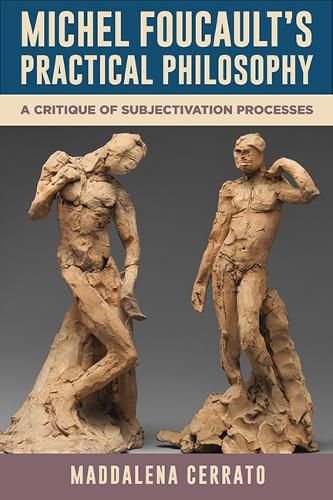Readings Newsletter
Become a Readings Member to make your shopping experience even easier.
Sign in or sign up for free!
You’re not far away from qualifying for FREE standard shipping within Australia
You’ve qualified for FREE standard shipping within Australia
The cart is loading…






Offers a holistic approach to Michel Foucault's thought, introducing the idea of practical philosophy as an original interpretative framework.
Michel Foucault's thought, Maddalena Cerrato writes, may be understood as practical philosophy. In this perspective, political analysis, philosophy of history, epistemology, and ethics appear as necessarily cast together in a philosophical project that aims to rethink freedom and emancipation from domination of all kinds. The idea of practical philosophy accounts for Foucault's specific approach to the object, as well as to the task of philosophy, and it identifies the perspective that led him to consider the question of subjectivity as the guiding thread of his work. Overall, Cerrato shows the deep consistency underlying Foucault's reflection and the substantial coherence of his philosophical itinerary, setting aside all the conventional interpretations that pivot on the idea that his thought underwent a radical "turn" from the political engagement of the question of power toward an ethical retrieval of the question of subjectivity.
$9.00 standard shipping within Australia
FREE standard shipping within Australia for orders over $100.00
Express & International shipping calculated at checkout
Offers a holistic approach to Michel Foucault's thought, introducing the idea of practical philosophy as an original interpretative framework.
Michel Foucault's thought, Maddalena Cerrato writes, may be understood as practical philosophy. In this perspective, political analysis, philosophy of history, epistemology, and ethics appear as necessarily cast together in a philosophical project that aims to rethink freedom and emancipation from domination of all kinds. The idea of practical philosophy accounts for Foucault's specific approach to the object, as well as to the task of philosophy, and it identifies the perspective that led him to consider the question of subjectivity as the guiding thread of his work. Overall, Cerrato shows the deep consistency underlying Foucault's reflection and the substantial coherence of his philosophical itinerary, setting aside all the conventional interpretations that pivot on the idea that his thought underwent a radical "turn" from the political engagement of the question of power toward an ethical retrieval of the question of subjectivity.